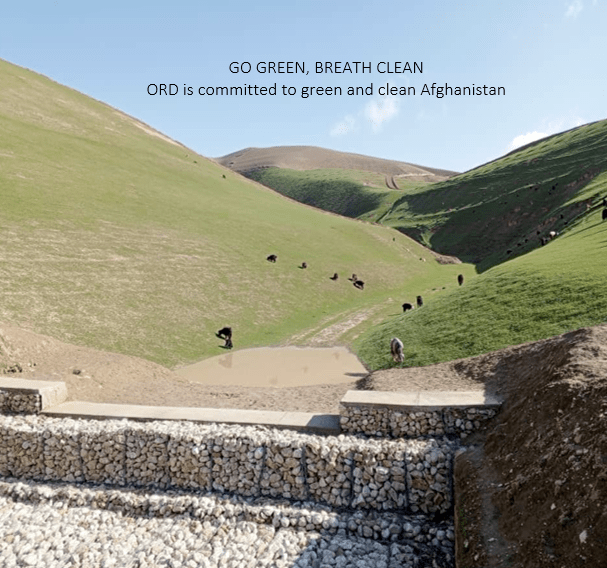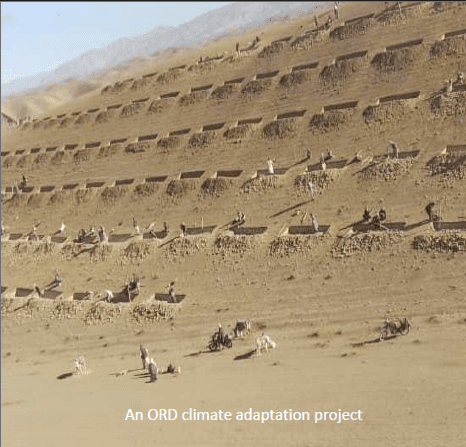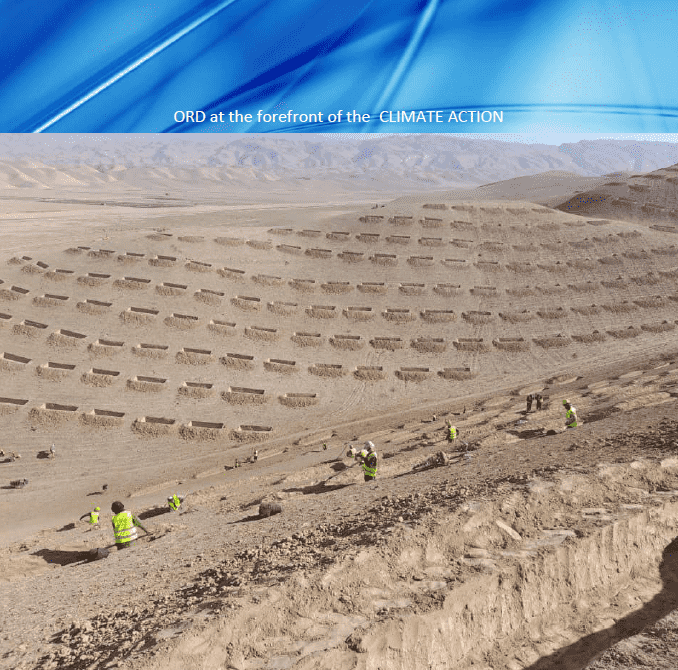Climate action:
Afghanistan, though minimally contributing to global warming, suffers disproportionately from its effects. Socio-economic impacts of climate change are profound. Agriculture, employing about 60% of the population, is severely affected by changing climatic conditions, leading to food insecurity, malnutrition, and increased poverty levels. Water scarcity affects agriculture, domestic, and industrial uses, exacerbating conflicts over resources. The health sector is strained, with increasing incidences of climate-related diseases such as heatstroke, respiratory ailments from dust storms, and waterborne diseases from flooding. These impacts compound existing socio-economic challenges, including conflict, political instability, and limited access to essential services. The Organization for Relief and Development (ORD) has been at the forefront of climate action since 2010 in Afghanistan. Climate action is a crosscutting thematic area at ORD, and almost 82% of our development and relief projects use climate action as an integrated component. With a deep understanding of local contexts and challenges, ORD implements community-based solutions that address both immediate needs and long-term sustainability. By focusing on disaster risk reduction, sustainable agriculture, water resource management, renewable energy, and advocacy, ORD aims to build resilient communities capable of adapting to climate challenges.



ORD Climate Action: Strengthening Disaster Resilience in Samangan
The Organization for Relief Development (ORD), in collaboration with NCA under the CSEE project, has successfully completed three Disaster Risk Management (DRM) projects in Hazrat Sultan District, Samangan Province. These efforts focus on sustainable water management to improve agricultural productivity and strengthen community resilience. Highlights: 1. Asya Bad (Site 1): Canal, water dividers, and retaining wall, directly benefiting 4,000 families (25,000 indirectly) and irrigating 850 jiribs of farmland. 2. Asya Bad (Site 2): Canal with water dividers, serving 37,000 families directly (50,000 indirectly), irrigating 3,700 jiribs. 3. Nawabad Ghandaki: Canal with water dividers, benefiting 33,000 families directly (50,000 indirectly), irrigating 3,700 jiribs. These projects demonstrate ORD’s commitment to building climate resilience and securing livelihoods for thousands of Afghan families. #ORDClimateAction #DRMProjects #Samangan



ORD participation at COP29 in Baku
From November 11 to 21, 2024, the Organization for Relief Development (ORD) participated in the 29th Conference of the Parties (COP29) to the United Nations Framework Convention on Climate Change (UNFCCC) in Baku, Azerbaijan. This pivotal global event convened governments, organizations, and climate stakeholders to address critical environmental challenges and strategize for a sustainable future. ORD highlighted Afghanistan’s vulnerability to climate change, emphasizing the disproportionate impact on its fragile ecosystems and socio-economic structures. The organization advocated for increased international funding and support to enable Afghanistan to implement adaptation measures and resilience-building initiatives.
